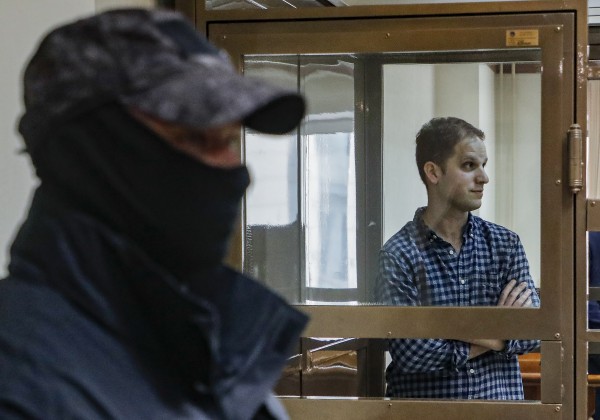International groups again raised concern last week over the state of media freedom in the Republic of Macedonia / Former Yugoslav Republic of Macedonia.
A joint delegation of freedom of expression and media development groups – including the International Press Institute (IPI) and its affiliate, the South and East Europe Media Organisation (SEEMO) – did so in a statement following a 17-18 November press freedom mission to Skopje.
The country has been the scene of troubling developments involving media, as highlighted in a SEEMO report from its previous mission that was released last week. The report criticised selective implementation of laws and regulations relating to media; a lack of transparency in government-funded advertising campaigns; a lack of independence of regulatory bodies and the public broadcaster; the continued criminalisation of defamation; and failures by journalists to live up to professional standards.
The full text of the international delegation’s statement appears below:
The International Partnership Group of freedom of expression organizations visited Macedonia on an evidence-gathering mission from 17-18 November 2011 and met with representatives of the government, the parliament, civil society, journalism associations and media development organizations, as well as individual journalists. The Group is concerned about the situation of freedom of expression and media freedom in Macedonia and finds:
-the Macedonian state authorities should take immediate and effective steps to implement the recommendations of the 2011 EU Progress Report on Macedonia regarding media freedom and those of the OSCE Special Representative on Freedom of the Media following her recent visit to the country;
-the government should decriminalize defamation and reform civil defamation to properly protect freedom of expression; at the same time the Group welcomes the assurances given by the Prime Minister, Deputy Prime Minister for European Affairs and Chief of Communications of the ruling coalition government (VMRO-DPMNE) that the government is committed to action to this end starting early next year;
-the commitment given by the two ministers that the government will begin a consultation on the reform of the legal framework on the media is welcome but the Group insists that all stakeholders have the opportunity to comment on all draft versions of the new legislation;
-whilst the Group generally supports the government’s new working group on media, in light of the deterioration in media freedom over the past year, this initiative is overdue and no substitute for extensive reform of the legal and policy framework on the media, as well as self-regulation and solidarity within the profession;
-there is an absence of media pluralism and diversity, and media ownership structures lack transparency and accountability;
-during this session of parliament, the government should develop a genuine public service media with the ability to raise revenue at arm’s length from the political process to ensure that this sector is not overly politicized;
-there has been selective application of the law against independent media outlets, especially on tax matters, which is contrary to international and European standards and the rule of law; it is a firm principle that the media has the right to continue to operate before the finalization of any judicial process;
-the recent expansion of the membership of the Broadcasting Council, the process on the appointment of its members, and the lack of transparency and open consultation about the Broadcasting Law is of deep concern;
-the pre-trial detention of managers of media companies since December 2010 is alarming and contrary to international and European human rights standards;
-whilst the use of public funds for advertising may have wider benefits, the disproportionate advertising by the Macedonian government – estimated to be the second largest source of advertising revenue in the country – unfairly distorts the media market and serves to disadvantage media outlets critical of the government; we call on the government to expend public funds on advertising in a manner that is transparent and accountable to the public;
-the lustration process is undermining the ongoing democratic development of Macedonia through its selective application to media professionals and civil society representatives;
-public officials and politicians should not use their authority or position to victimize journalists;
-the state authorities should fulfill their international obligations on the right to information by, among other things, affirmatively publishing information about government activities and effectively implementing the Law on Access to Information of 2006.
The International Partnership Group on Macedonia consisted of:
ARTICLE 19, Freedom House, Index on Censorship, International Press Institute, Global Forum for Media Development, Media Diversity Institute, Open Society Media Program, South East Europe Media Organisation and South East European Network for Professionalization of Media
Skopje, Macedonia
18 November 2011


